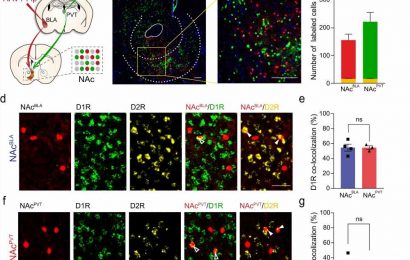A recent analysis from Avalere Health found that drug price negotiations built into the Build Back Better Act will reduce Medicare payments to independent community oncology practices by almost 45%.
These cuts will do “unintended and devastating damage to cancer care,” according to the Community Oncology Alliance (COA), which sponsored the analysis.
The Biden administration’s legislation, approved in the House and currently awaiting a vote in the Senate, contains a range of proposals to curb healthcare costs. The proposal analyzed in the Avalere analysis would enforce a price maximum on 10 yet-to-be-determined high-priced drugs covered by Medicare Part B.
Setting this maximum is intended to lower the price the US government pays manufacturers for some of the most expensive drugs, including cancer medications, and would also reduce patient co-pays, which are typically a percentage of the cost of the drug for Medicare Part B enrollees.
But when the bill’s language became public, COA immediately became concerned that the change would hurt community oncologists and wanted to understand the impact, according to Ted Okon, MBA, executive director of the Alliance.
In the analysis, Avalare researchers chose 10 drugs it anticipated making the list and estimated that capping these prices would reduce payments to oncologists by 43%.
COA issued a press release in mid-November highlighting the study results and cautioning that the “latest payment cuts will do the same thing they have always done ― cause practices to close, push more cancer care into more expensive hospitals and, ironically, cause patients’ costs to increase.”
Radio and print ads, sponsored by COA and first airing in late November, reiterated this message, warning that the cuts would have “serious unintended consequences” for cancer patients — more specifically, they would cause “cancer clinics to close” and “massively” raise patients’ healthcare costs.
While experts agree that oncology offices will experience a decline in payments if the act becomes law, they are skeptical that the cuts will be as severe as COA suggests.
The claim that 43% of payments would be cut “is really extreme,” said Alice Chen, PhD, a health economist at the USC Sol Price School of Public Policy, Los Angeles, and expert on drug pricing. “That number needs to be clarified and estimated more carefully.”
Chen noted that the 43% estimate cited in the analysis refers to potential cuts to add-on payments, which is just one type of payment oncologists receive. Medicare Part B reimburses oncologists the average sales price (ASP) of the drug plus a 6% add-on payment to cover procurement, administration, storage, and disposal.
“[COA] commissioned an analysis that did not look at the total impact on community oncology practice finances. They looked just at drugs affected, which wildly inflates impact,” Peter Bach, MD, director of the Center for Health Policy and Outcomes at Memorial Sloan Kettering Cancer Center, told Kaiser Health News.
But for oncology practices already struggling to stay open, any decline in income could represent the final straw.
In particular, Okon is concerned that the price oncologists pay for these drugs will remain the same while Medicare reimbursement drops. The lower price Medicare pays would be reported to the manufacturer and calculated into the drug’s ASP, reducing the 6% add-on reimbursement.
Chen confirmed that this is possible. “If we assume CMS continues to reimburse based on ASP+6%, then yes, the ASP will drop,” Chen said. “But providers should be able to acquire the drug at the maximum fair price,” which should remain lower than the ASP.
Even so, Chen noted, the proposal may hit small practices harder than larger operations and hospitals. Community practices tend to rely more on Medicare reimbursement and add-on payments and often pay more for drugs than hospitals and conglomerates, which buy in bulk, she said.
If the legislation does disproportionately affect smaller providers, it will be a problem. If smaller providers can’t afford to operate, they will either close or consolidate — a problem that has plagued community oncology practices for years. Chen also wonders whether the Part B drug negotiations would increase drug costs more broadly if “manufacturers try to negotiate even harder with private insurers now that they’re not making as much for Medicare.”
Okon believes there may be an easy fix.
For instance, rather than making oncology providers the middlemen who assume the risk, the proposal’s language should be changed so that Part B payments to providers remain unchanged and the reduced price paid by the government is not calculated into the ASP. This would remove the risk to providers, he said.
Bottom line, according to Chen, is the bill attempts to reduce expenditures, which means there will be consequences. But to understand what those consequences will be, we need more detailed estimates, Chen told Medscape Medical News.
For more news, follow Medscape on Facebook, Twitter, Instagram, and YouTube.
Source: Read Full Article


